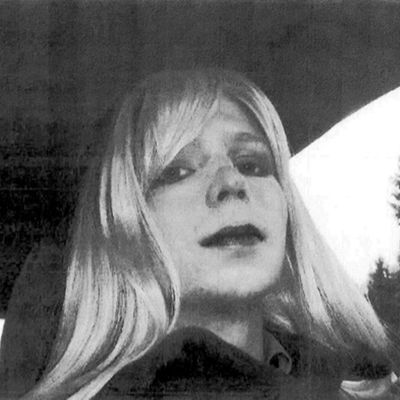
The morning after the WikiLeaker formally known as Pfc. Bradley Manning was sentenced to 35 years in military prison, the convict issued a public statement: “As I transition into this next phase of my life, I want everyone to know the real me. I am Chelsea Manning. I am female.” Chelsea is seeking hormone therapy and has one request: “that, starting today, you refer to me by my new name and use the feminine pronoun (except in official mail to the confinement facility).”
Most news outlets who wrote about that request denied it. “He intends to live out the remainder of his life as a woman,” both Today and USA Today reported. “Bradley Manning says he wants to live as a woman,” the Associated Press announced. CNN, ABC News, the Boston Globe, the New York Daily News, the New York Post, Politico, the Telegraph, the Times, the Los Angeles Times, and the New York Times* used masculine pronouns. The Washington Post only used proper nouns, a tactic the Times used last year in a profile of transgender performer Justin Vivian Bond, who prefers the pronoun v. Reuters, the Guardian, and the Daily Mail used female pronouns, as did Daily Intelligencer.
Why is it so hard for people to type an extra s when they write about Manning? We updated our nomenclature for “Snoop Lion” and “the Artist Formerly Known as Prince.” “Ali Lohan” and “Lil’ Bow Wow” became “Aliana” and “Bow Wow” to reflect personal growth. We accept typographical requests from branded products like iPhone, PowerPoint, and eHarmony — and from branded humans like Ke$ha, A$AP Rocky, and ‘N Sync. (The last being unusual even without the asterisk.) The idiosyncrasies of capitalism, apparently, are more compelling than a human’s self-professed gender.
So why not pronouns? Particularly when the change is one that won’t even set off spell-checker? Even if you cling to the belief that a word is not real until a certain number of dictionaries endorse it, she isn’t a linguistic problem. It’s only a problem for those who read it and balk, because they aren’t used to it in the context of this particular person.
Squeamishness, then, is the obvious answer. But Manning’s public gender identity is admittedly complex; today’s press release arrived on stationery labeled “Bradley E. Manning,” presumably owing to the “official mail” name caveat. Since the military still refers to her as “Bradley,” masculine nomenclature has an air of authority. Similarly, editors who prize consistency in style and prose seem unwilling to accept change, preferring to waste precious column inches typing out “Private Manning” in every sentence if it saves them from making a decision. (“Bradley Manning” and “he” are also more recognizable in this context.)
But Manning is also a divisive figure. People abandon convention more readily for figures they admire. (Sometimes they overdo it: E.E. Cummings didn’t always write his name in lowercase, but fans of his poetry call him “e.e. cummings” anyway.) Skepticism about Manning’s motives, character, and state of mind may taint onlookers’ abilities to take her seriously. But even then, what’s the worst that could happen? She changes her mind and we go back to he? Even the worst-case scenario is so minor it doesn’t qualify as a problem.
So call Chelsea Manning “she,” already. To refuse isn’t a political statement — it’s just stubborn.
* Update: Though the Times initially used no pronouns, it added masculine ones when the story expanded. Public editor Margaret Sullivan quotes their house style guide, which says, “Unless a former name is newsworthy or pertinent, use the name and pronouns (he, his, she, her, hers) preferred by the transgender person.” Nevertheless she concludes, ”It may be best to quickly change to the feminine and to explain that — rather than the other way around.”




